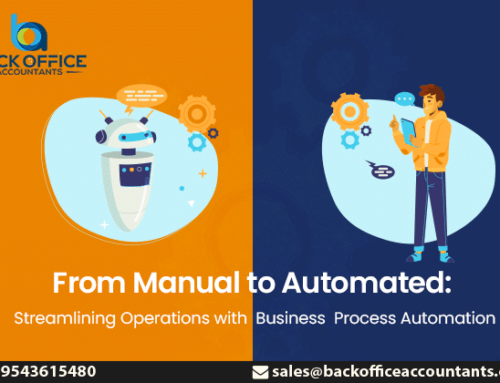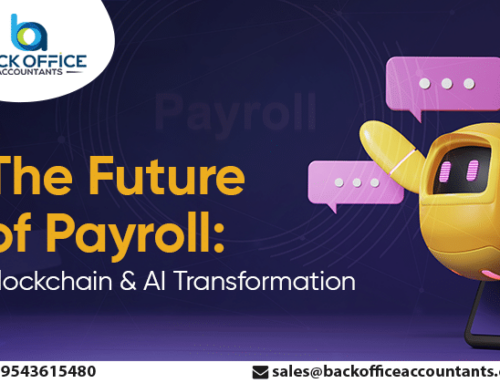People generally believe that cyberattacks primarily target large tech companies, financial institutions, or hospitals. This perception is a result of the dramatic portrayals we often see in movies, where hackers take on high-profile organizations in intense, action-packed scenarios. However, cybersecurity in accounting is also a critical area of focus, as accounting firms handle sensitive financial data that can be a prime target for cybercriminals.
This may be very entertaining, but it distorts reality and gives the false impression that cybercriminals don’t target smaller companies. Far from it, small and medium-sized enterprises (SMEs) are increasingly targeted by hackers. Therefore, SMEs should be cyber-conscious and take proactive measures to protect their delicate data.
Common Cybersecurity Threats in SME Accounting
Small and Medium-sized enterprises face different Cybersecurity attacks. Some of these include:
- Phishing attacks: You can send fraudulent emails masked as legitimate invoices. Once users click them, they expose sensitive data and grant access to malicious software.
- Ransomware: Cyber criminals would lock users out of their accounting systems and demand a ransom to restore access.
- Data Breach: Hackers would steal financial data and customer details
- Insider Threats: This is when employees compromise data because they have weak passwords or are acting maliciously.
Why are SMEs Targets for CyberCriminals?
Many SMEs lack the resources necessary to put comprehensive cybersecurity strategies for SMEs into place compared to large corporations with strong IT departments and sophisticated defences. Because of this, their systems have weaknesses that hackers can readily take advantage of, like out-of-date software or inadequate firewalls.
SMEs are also desirable targets because they handle sensitive financial data, such as bank account information, payroll records, and customer payment information. Additionally, SMEs handle sensitive financial data, including bank details, payroll records, and customer payment information, making them attractive targets. Such data is highly lucrative, as it can be sold on the dark web or used for fraudulent activities.
Another reason SMEs are frequently targeted is their perceived insignificance. Many small business owners assume their size protects them from cyberattacks This false sense of security often results in vulnerabilities, such as weak passwords or a lack of staff training on identifying phishing scams.
Together, these factors make SMEs appealing to attackers looking for easy access with little to no resistance. By understanding these risks, SMEs can take proactive steps to strengthen their cybersecurity and protect their valuable data.
Why Prioritize Cybersecurity in Accounting?
- Client Trust
Clients want to believe that their data is secure with you and trust you to take every reasonable steps to safeguard it. A data breach is a breach of your client’s trust and puts their financial security at risk. One way of not betraying their trust is to prioritise cybersecurity.
- Prevent Financial Loss
Cybercriminals make use of the data they have stolen to manipulate records and commit fraud. These aspects negatively impact company resources and some businesses may not recover. Prioritising Cybersecurity (Cybersecurity in Accounting) will help prevent successful attacks and financial losses.
- Ensure Business Continuity
You can attract customers who really value privacy and security. It keeps you at the top of the industry.
- Avoid Legal and Compliance issues
Every company regardless of size has to abide by the relevant laws and these laws and regulations are getting stricter worldwide. In the event that there is a data breach, affected customers may take legal actions against the businesses and settling these would cause a strain on the financial health.
Measures to Ensure Cybersecurity
These cybersecurity tips for SMEs can help overcome various threats:
- Secure software and Data Encryption
Encrypt data before you store it even in the cloud, that way peradventure s person gets to the jokes, they would be unable to open the files without the encryption key. Make use of trusted Accounting software and keep it up to date for protection.
- Multi-factor authentication
According to the Cybersecurity (Cybersecurity in Accounting) and Infrastructure Security Agency, Muti factor authentication reduces the likelihood of anyone being hacked by 99%. Make sure to take an extra step to add one more layer of security.
- Employee Training and Awareness
Employees should be properly trained to recognise whisking scams, ignore suspicious emails and attachments and of course report any irregularities they notice. There are ao many courses available online to learn about this.
- Regular backups
Businesses should provision automated backups of important data so that they can restore it to a previous state almost immediately in the event of loss. Have plans which outline steps you can take to recover your data quickly. Moreover, ensure to partner with IT professionals to upgrade your security.
Conclusion
For SMEs, the digital era presents a wealth of opportunities, especially in terms of simplifying accounting procedures. However, there are also serious risks associated with these opportunities. Cybersecurity (Cybersecurity in Accounting) is an essential investment in the long-term stability and prosperity of the company, not an optional one.
SMEs can safeguard their financial information, improve client trust, and guarantee legal compliance by being aware of the risks, putting sensible safeguards in place, and encouraging a culture of alertness. Upgrade your cybersecurity strategy today and safeguard your business for the future with backoffice accountants.







